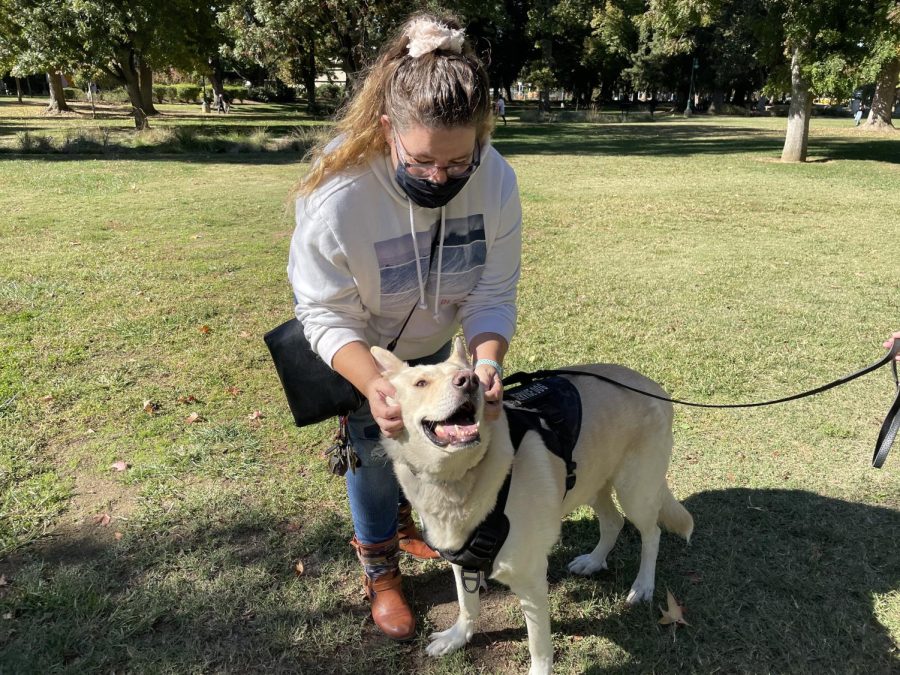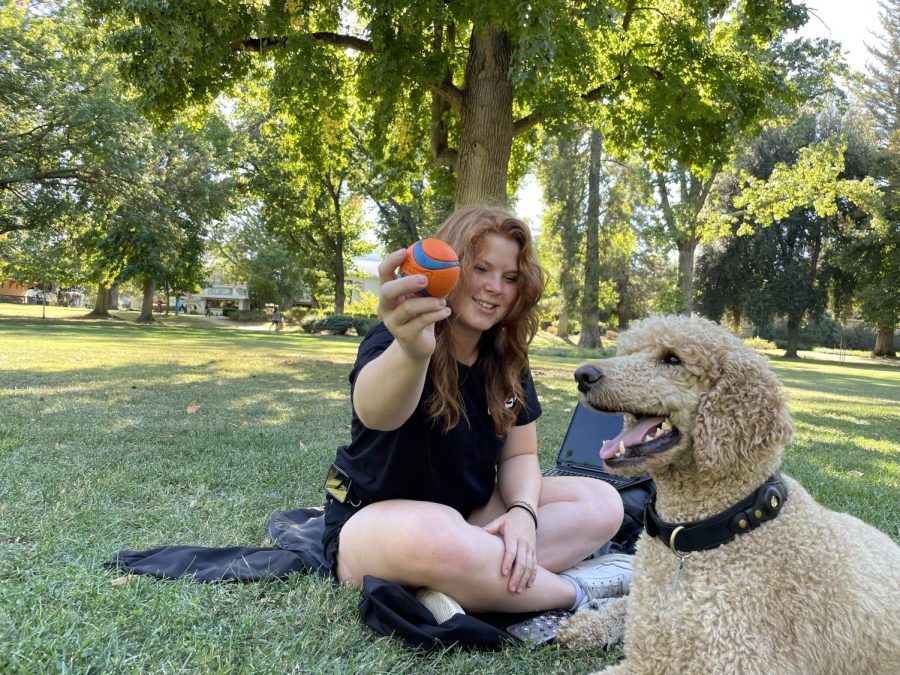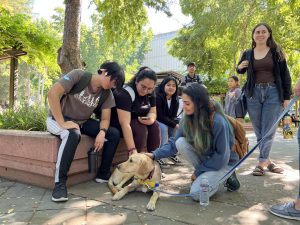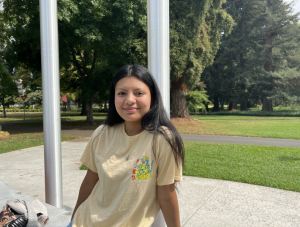Waggy tails assist students on campus
Service dogs help students with all kinds of disabilities
Biology major Haley Anderson, one out of the many students on campus with a service dog, smiles while accompanied by her service dog. She plays fetch after class with her service dog to end her day on Tuesday Sept.27, 2022.
November 14, 2022
19-year-old biology major Haley Anderson, like many others who rely on the assistance of a service dog, deals with a differently abled experience while navigating Sacramento State’s campus.
“Having him around with me all the time really, really helps me,” Anderson said. “I’ve noticed that not having him, I definitely have a lot more anxiety.”
Differently-abled Sac State students rely on assistance provided by a service dog and face a different campus experience. These students are people with disabilities who are assisted in their daily life by a service dog.
Anderson, a full-time college student, relies on a trained service dog to help her deal with some of her complications as a person with diabetes. Anderson’s dog notifies her about her blood glucose levels and supports her when she gets anxious.
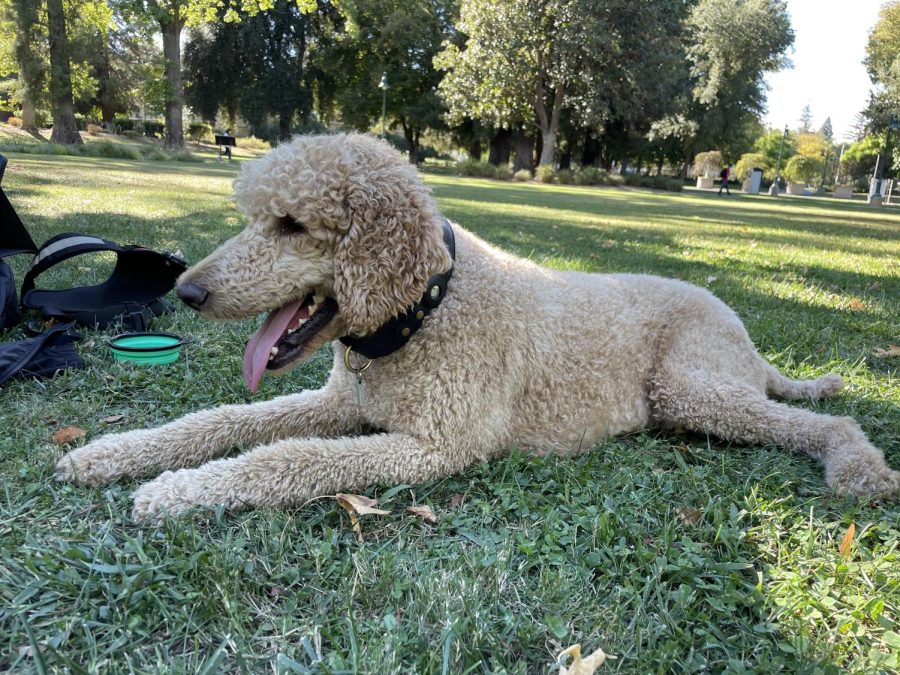
Anderson’s service dog alerts her of changes by smelling her blood sugar levels since certain blood sugar levels give off a different scent.
22-year-old communications major Cassandra Ribeiro said service dogs are beneficial, especially regarding her mother, which has led to her beginning to train a service dog of her own.
“I’m training my own service dog,” Ribeiro said. “I’ve noticed that she [ her service dog in training] personally helps me a lot when it comes to my disability.”
Her dog helps her with interrupting behavior. Ribeiro taps herself on the leg, eventually leaving her bruises. She is training her serivce dog to alert her when she does this by placing her face in between her hand and leg so that she could stop.
“A few weeks ago I had an anaphylactic reaction and of course that’s going to scare someone,” Ribeiro said. “She [service dog in training] helped me calm down enough to where I could actually talk when it came to the first responders.”
Ribeiro’s mother doesn’t allow people to pet her service dog since her dog responds to medical alerts by scent and people can transfer perfumes to his fur.
“Having him [service dog] has kept me out of a wheelchair for me. He’s life-changing,” Ribeiro said. “He’s allowed me to be more of the person I was before I was disabled.”
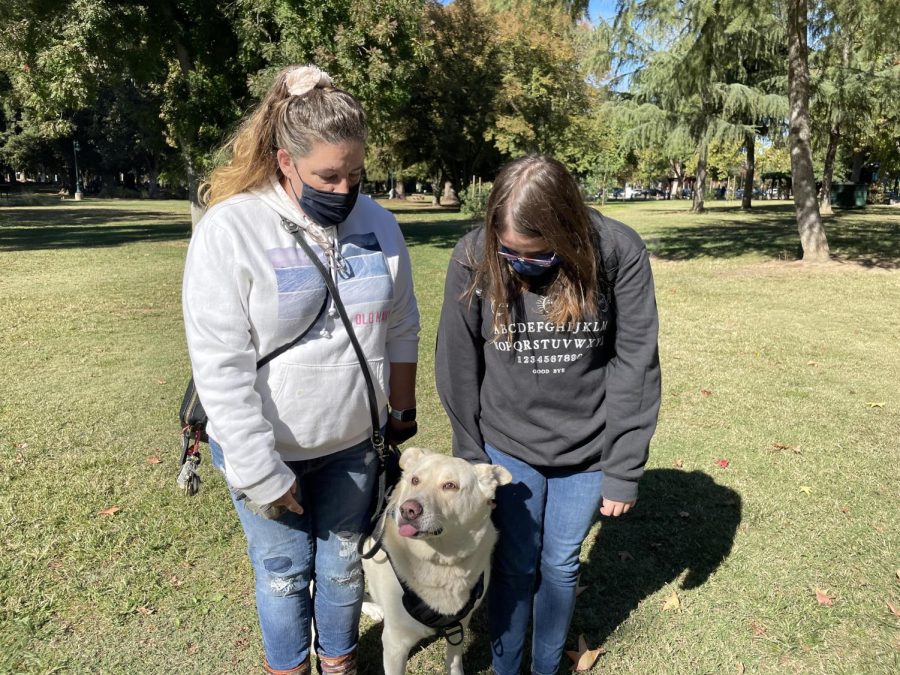
Anderson allows her dog to take breaks throughout the day since she constantly moves. Having a morning job and being a full-time student can be a lot for her companion. At the end of her classes, she ends her day playing fetch or exercising with her service dog.
Ribeiro can’t drive and gets help from her mom Amanda Ribeiro, who is also disabled and has a service dog, to get to campus.
“I’m here as a visitor, mainly because she can’t drive,” Amanda Ribeiro said. “I drive her up, and then we [her and her service dog] just hang out while we wait for her to be done.”
Despite having different lifestyles, one thing Anderson and the Ribeiro’s share is the extra help their service dogs provide for them.
According to Ribeiro and Anderson, there are some things Sac State students and faculty can do to accommodate and improve the environment for students with service dogs.
Cassandra Ribeiro said they’ve never had any access issues on campus, but she wishes people understood not to interact with service animals.
“That’s the main concern,” Cassandra Ribeiro said.
The inclusion of more water stations for the dogs around campus is something the university can do for students with service dogs, Anderson said.
Spending most of her day on campus, Anderson said she sees the lack of accessibility for service dog handlers like her. She said giving him the breaks she does is very important because she has her service dog with her all day.
Service dogs work all day, keeping them in mind giving them space and accessibility to break areas to keep them healthy is Anderson’s biggest concern.
